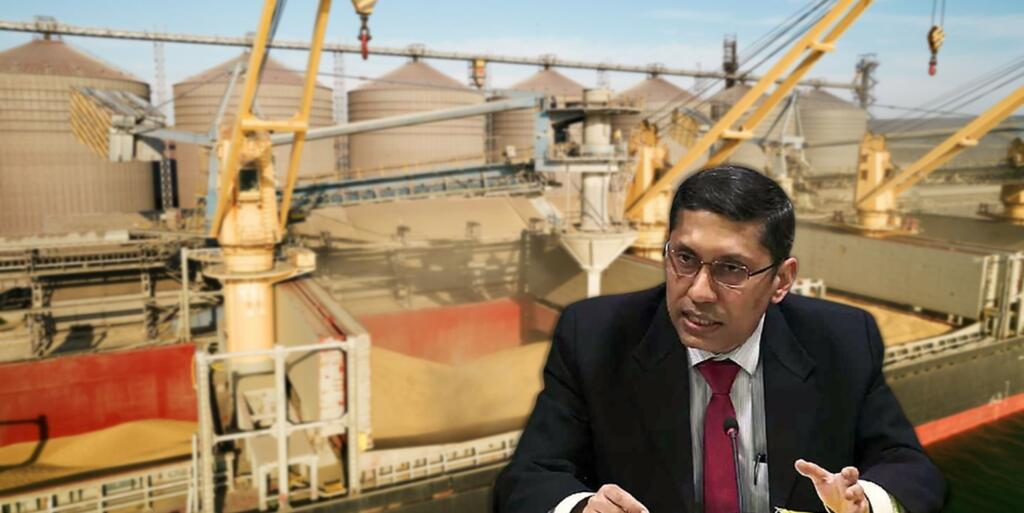Ukraine grain corridor: The multi-national global platforms are highly inclined towards the ‘superpowers’ and the ‘elitist UNSC members.’ During the Covid pandemic, India has been a generous donor. But on international platforms, the nation hardly found due mention. As a consequence, the ‘aspiring superpower’ has to shift focus towards rejuvenating bilateral ties with the fellow nation. The existing system has brought to life the ‘age-old debate’ over whether India has genuinely benefited under the current trade setup and donation mechanism or not?
The sudden eagerness of the nation to sign plethora of new free trade agreements with important trading partners can be seen as a move to surmount the existing fault-lines. After a decade of scepticism, India seems to have learned the lesson. The nation heads towards shifting the focus from multinational platforms to bilateral trade agreements. India seeks to establish direct trading and strategic relationships with the members of the international community. The nation is doing this to garner more support in the international platforms and global value chain.
India eyes to enhance its role in global value chains
India seems to be on the path of ‘course-correction’ with respect to its approach on free trade agreements. The nation seems to align its interests on the internal front with the needs of the changing dynamics of global trade. The present foreign policy is aimed at enhancing the exports of value added goods and modern services.
The government seeks to get the best out of the bilateral strategic partnership and also strengthen its position in global value chains. Thus, with the view to capitalize on the opportunities in the global market, the Indian FTAs are categorically focused on the West, including the UK, EU, UAE and Eurasia, apart from Australia. In contrast to previous policy on FTAs, which were more “Look East” centric, the current approach is more inclined towards the Western markets.
The tectonic transition in the Indian FTA policy is backed by the growing requirement of finding reliable and resilient supply chain partners. Thus, creating a win-win situation for the West as well as India, as the West would find an opportunity to capitalize on the Indian markets, while India would benefit from investment and technology transfer.
Indian stance on Ukraine grain corridor
With the view to meet ends of the refurnished FTA policy, India is not expected to join the “grain corridor” with Ukraine. It has been pointed out that bilateral arrangements are in place for India to provide food grain assistance to other developing nations.
The statement of MEA spokesperson Arindam Bagchi, highlights that India aims to develop ‘bilateral south-south mechanisms’ in furtherance of its ‘Ekla Chalo Re’ vision with respect to the independent foreign policy of the nation.
India has distanced itself from the Ukraine grain corridor, formally known as the ‘Black Sea Grain Initiative’, brokered by the United Nations. The ‘Initiative on the Safe Transportation of Grain and Foodstuffs from Ukrainian ports’ was envisioned to pave the way for the resumption of Ukrainian grain exports and help stabilize spiralling food prices worldwide.
Also Read: Biden accepts India’s stand on Russia – Ukraine war and PM Modi didn’t even try
Indian Scepticism on Turkey
The Indian scepticism has a lot to do with the involvement of Turkey in the ‘gain corridor’ initiative. The purported agreement was signed on July 27 in Istanbul, under the watch of Turkey and the UN. However, owing to the antagonistic attitude of Turkey towards India, the latter is forced to revisit its decision of joining the initiative. On the contrary, it provides India with an opportunity to build better bilateral ties with Ukraine by engaging bilaterally with the European nation.
That is to say, the much-accredited Indian foreign policy is cantered on the Gandhian principle of ‘Ekla Chalo Re’. The new foreign policies are aimed at signing bilateral ‘free trade agreements’ with developed nations so as to capitalize on new export opportunities. Further, with the inclusion of modern trade ‘elements such as sustainability, resilience, labour, gender, and digital trade’, India is all set to sign comprehensive FTAs with various member states.
Support TFI:
Support us to strengthen the ‘Right’ ideology of cultural nationalism by purchasing the best quality garments from TFI-STORE.COM
Also Watch:
